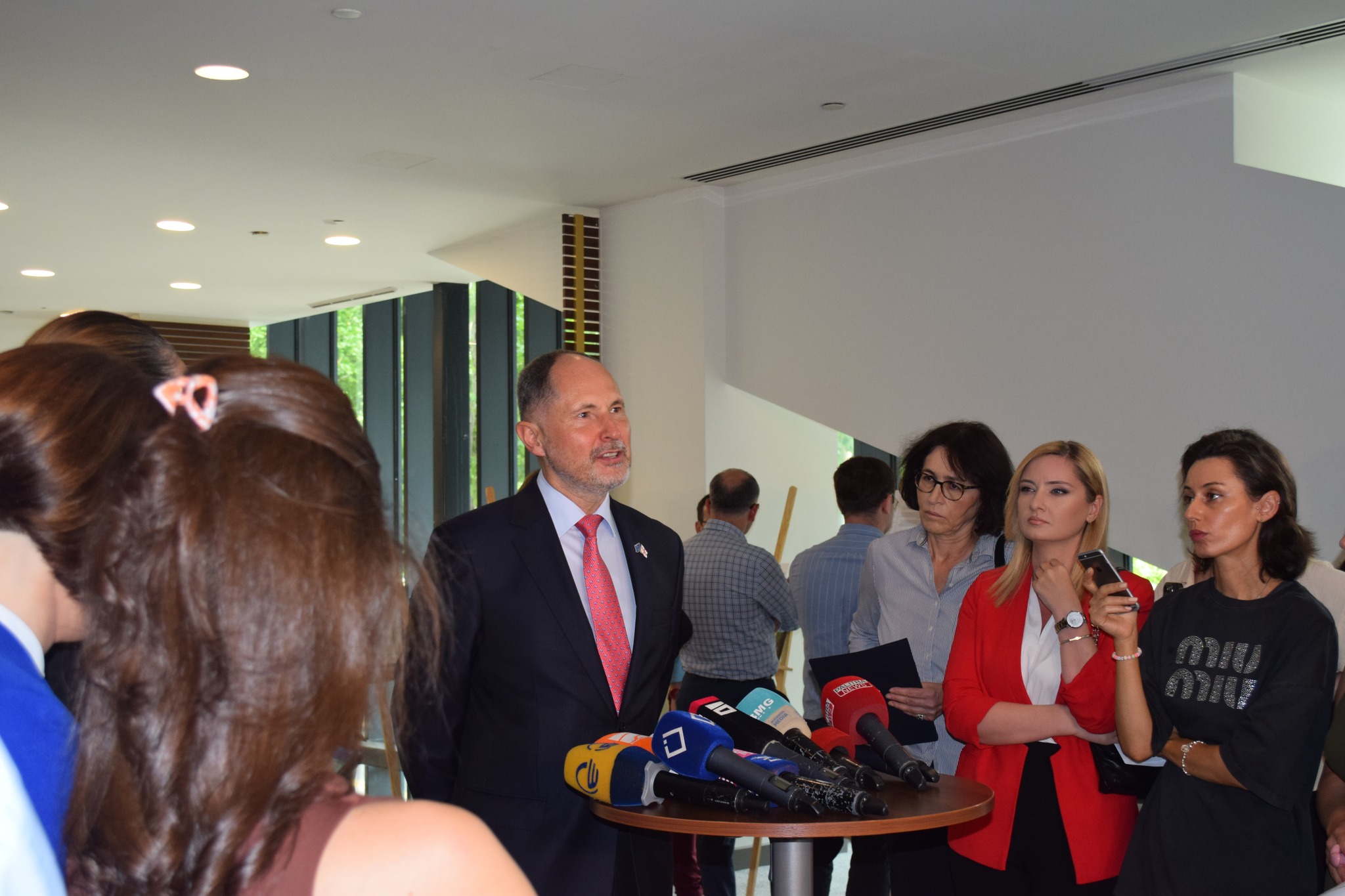"Germany is reassessing its relations with Georgia," says the German Ambassador
Germany’s relations with Georgia
Germany has decided to comprehensively reassess its relations with Georgia, which includes canceling the joint legal forum, withdrawing from participation in the “Noble Partner 2024” exercises, and not taking on any new financial commitments, stated the German Ambassador to Georgia, Peter Fischer.
The ambassador also mentioned that Berlin might reconsider its military aid to Georgia, although he categorically denied the rumors that Germany would cancel student visas for Georgian citizens.
“We are in the process of a comprehensive reassessment of our relations with Georgia. As you know, we have had very deep and extensive relations. Along with the United States, we are one of the largest donors of development cooperation in Georgia. We have decided not to take on new commitments towards Georgia. The German military has also refused to participate in the ‘Noble Partner 2024’ exercises. We canceled the large legal forum, which was held in Tbilisi last year and was supposed to take place this summer in Berlin. We will consider further possibilities,” Fischer told journalists.
He said that Georgia’s EU accession process has been paused, although swift progress in this direction is possible.
“We want to move forward, but the speed and quality of the enlargement process are in the hands of the candidate country. We would welcome Georgia into the European Union. But you know the procedure—you must meet our standards. And if you do not meet them, then you cannot join [the EU]. So, citizens of Georgia, you need to think about how important the European Union is for you, your children, your grandchildren. You need to get back on the right track,” Fischer said.
He also expressed hope that Georgian-German relations would return to the positive dynamics observed between the two countries over the past 30 years.
“We are friends and partners, and we want Georgia to join the European Union. This is the greatest act of friendship we can offer to the Georgian people. It is not directed against the Georgian people,” said Fisher.
Journalists asked him about Georgian foreign minister Ilia Darchiashvili’s assessment that the suspension of financial aid to Georgia’s defense sector is a minor issue, to which the ambassador replied:
“The accession process and EU policy are very easy to understand. You just need to read the EU treaties to understand what the EU is. Read the Copenhagen criteria, and you will learn what is needed for accession. Read the assessments of the Commission, read the decisions of the European Council.
- The US has indefinitely postponed joint military exercises with Georgia
- Moscow claims “U.S. wants to change Georgian government”; Washington calls It “complete lies”
Feedback
Vice-Speaker of the Georgian Parliament Giya Volsky reacted to Peter Fischer’s statement in a conversation with journalists, noting that what he said raises questions about whether there is indeed an intention to change the government.
“In this case, Mr. Fischer is not correct, and society should understand that rhetoric can provoke reactions, as was the case with the current EU Commissioner, former Prime Minister of Estonia, regarding Georgia. Making such a statement is at least unfair and raises certain questions: is there really an idea behind these steps to change power and staff the government with people like Lomjaria, when elections are already very close?” Volsky said.
Background
According to the EU Ambassador to Georgia, Paweł Herczyński, the European Union has frozen 30 million euros in aid that was planned to be transferred from the European Peace Fund (EPF) to the Georgian defense forces.
Herczyński stated that Georgia’s accession process to the EU is currently at a standstill. This decision was made by the EU leaders at the latest European Council meeting on June 27.
The ambassador reported that if the situation deteriorates further, other measures will be considered:
“At this moment, the funds we planned to transfer to the Ministry of Defense of Georgia, which amount to 30 million euros, are frozen. This is just the first step; there will be other steps.”
According to Herczyński, direct EU support to the Georgian government will be reduced and focused on civil society and media.
Georgian Foreign Minister Ilya Darchiashvili called all of this “decisions made at the micro-level.”
In the conclusions of the European Council meeting held on June 27, it is stated that the adopted law “On Transparency of Foreign Influence” is a step back from the European Commission’s recommendations for granting Georgia candidate status for EU membership.
Germany’s relations with Georgia



















